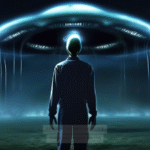What Scientific Evidence Exists for the Reality of Psychic Abilities?
What Scientific Evidence Exists for the Reality of Psychic Abilities?
The concept of psychic abilities has intrigued humanity for centuries, with tales of clairvoyance, telepathy, and precognition permeating cultures and folklore. Yet, despite the prevalence of these stories, the scientific community remains skeptical. This question—What scientific evidence exists for the reality of psychic abilities?—is crucial for understanding not only the nature of these phenomena but also their implications for our understanding of consciousness and reality. In this blog post, we will delve into the historical context, explore various theories and documented cases, examine practical implications, and discuss ongoing research in the field of psychic phenomena.
Historical Context of Psychic Phenomena
The fascination with psychic abilities can be traced back to ancient civilizations. In various cultures, shamans, oracles, and sages were believed to possess special powers to foresee future events or communicate with the spiritual realm. For instance, the Oracle of Delphi in ancient Greece was consulted on matters of state and personal importance, showcasing the societal reverence for individuals claiming psychic insights.
Throughout history, the perception of psychic abilities has evolved. The 19th century marked a significant turning point with the rise of Spiritualism, a movement that emphasized communication with the deceased through mediums. This era saw a surge in psychic claims, leading to both fervent belief and rigorous skepticism. Notably, the Society for Psychical Research (SPR) was founded in 1882 to investigate paranormal claims scientifically, laying the groundwork for modern psychic research.
Core Concepts and Theories of Psychic Abilities
To understand psychic abilities, it is essential to explore various concepts and theories that attempt to explain these phenomena. One prominent theory is the idea of non-local consciousness, suggesting that consciousness transcends physical boundaries and may be interconnected. This concept aligns with some interpretations of quantum mechanics, where particles can exhibit behaviors that defy classical physics, leading to speculations on consciousness influencing matter.
Another theory is the “collective unconscious,” proposed by psychologist Carl Jung. This idea posits that individuals share a reservoir of experiences and knowledge, which may explain phenomena like telepathy or precognitive dreams. In this view, psychic abilities are not individual talents but rather a tapping into a shared universal consciousness.
Documented Cases of Psychic Phenomena
Several documented cases of psychic phenomena have been extensively analyzed, raising questions about their validity and implications. One notable case is that of Uri Geller, an Israeli psychic known for his spoon-bending abilities. In the 1970s, Geller was subjected to scientific scrutiny, including tests conducted by parapsychologists at Stanford Research Institute. He consistently demonstrated his abilities under controlled conditions, although skeptics argue that his feats can be attributed to trickery.
Another significant case is that of the United States government’s Stargate Project, which aimed to investigate the potential of psychic phenomena for military and intelligence purposes. Between 1978 and 1995, the program explored remote viewing—an alleged ability to perceive distant or unseen targets. While some results appeared promising, the project was ultimately deemed inconclusive, leading to its termination.
Practical Implications of Psychic Research
The investigation of psychic phenomena has profound implications for various fields, including psychology, neuroscience, and even military strategy. Understanding psychic abilities could revolutionize our comprehension of consciousness and the mind-body relationship. For instance, if psychic abilities were validated, they could lead to new therapies for mental health issues or enhance communication methods.
Moreover, the potential applications of psychic phenomena in intelligence and security cannot be overlooked. The Stargate Project, although controversial, highlights the interest in using psychic abilities for espionage and strategic advantage. Such possibilities continue to fuel curiosity and debate within both scientific and governmental circles.
Alternative Perspectives on Psychic Abilities
While some embrace psychic phenomena as legitimate, others maintain a skeptical stance. Critics argue that many purported psychic abilities can be explained through psychological principles such as cold reading, confirmation bias, and the placebo effect. Cold reading, for instance, involves making generalized statements that can apply to almost anyone, thereby creating the illusion of insight.
Furthermore, skeptics often point to the lack of replicable results in scientific studies of psychic phenomena. The scientific method relies on repeatability and empirical evidence; thus, the inability to consistently reproduce psychic claims casts doubt on their validity. This skepticism is essential for maintaining rigorous standards in research and preventing the proliferation of misinformation.
Common Misconceptions and Clarifications
Misconception: All psychics can predict the future.
Clarification: While some claim prophetic abilities, others may possess skills like intuition or heightened perception, which should not be conflated with genuine precognition.
Misconception: Psychic abilities are inherently fraudulent.
Clarification: While skepticism is warranted, it is essential to differentiate between fraudulent behavior and authentic experiences that remain unexplained by current scientific understanding.
Best Practices for Investigating Psychic Phenomena
For those interested in exploring psychic abilities, certain best practices should be observed to ensure a thorough and unbiased investigation. First, it is crucial to maintain a balanced perspective, recognizing both the potential for genuine phenomena and the likelihood of psychological explanations.
Second, utilizing controlled experimental conditions can help mitigate the influence of external factors. This might include double-blind trials where neither the participant nor the experimenter knows the specifics of the test. Third, documenting all findings meticulously will aid in analyzing patterns and trends in psychic claims.
Finally, engaging with both skeptics and proponents of psychic phenomena can enrich understanding and promote critical discourse. Discussions should be open-minded, allowing for diverse viewpoints and fostering a collaborative approach to unraveling the mysteries of the mind.
Future Developments and Ongoing Research
The future of psychic research remains an open question, with ongoing studies seeking to explore the extremes of human consciousness. Advances in neuroscience, particularly neuroimaging technologies, may provide insights into the brain’s potential to access psychic abilities. Research initiatives focusing on altered states of consciousness, such as meditation and lucid dreaming, could further illuminate the nature of psychic phenomena.
Moreover, interdisciplinary collaborations between scientists, psychologists, and parapsychologists may yield new frameworks for understanding and validating psychic experiences. As technology continues to evolve, the opportunity to study these abilities with greater precision and objectivity may finally bridge the gap between skepticism and belief in psychic phenomena.
Conclusion: The Enigma of Psychic Abilities
The question of whether scientific evidence exists for the reality of psychic abilities remains a complex and multifaceted issue. While historical accounts and documented cases suggest the potential for genuine phenomena, the scientific community continues to grapple with skepticism and the challenges of empirical validation. As research progresses, the exploration of psychic abilities may not only expand our understanding of consciousness but also redefine the very nature of reality itself. In a world where science and the unknown intersect, the enigma of psychic abilities invites us to ponder the limits of human potential and the mysteries that lie beyond our current understanding. 💡
Other Articles
Recent Posts
- What Happened to Flight MH370? The Conspiracy Theories That Still Haunt Us
- What Secrets Lurk Within the Walls of the Infamous Trans-Allegheny Lunatic Asylum?
- What Evidence Supports the Existence of Bigfoot in the Pacific Northwest?
- What Happened to the Indus Valley Civilization? Unraveling the Mysteries of Ancient Urban Life
- Can Telepathy Be Scientifically Proven Through Laboratory Evidence?







